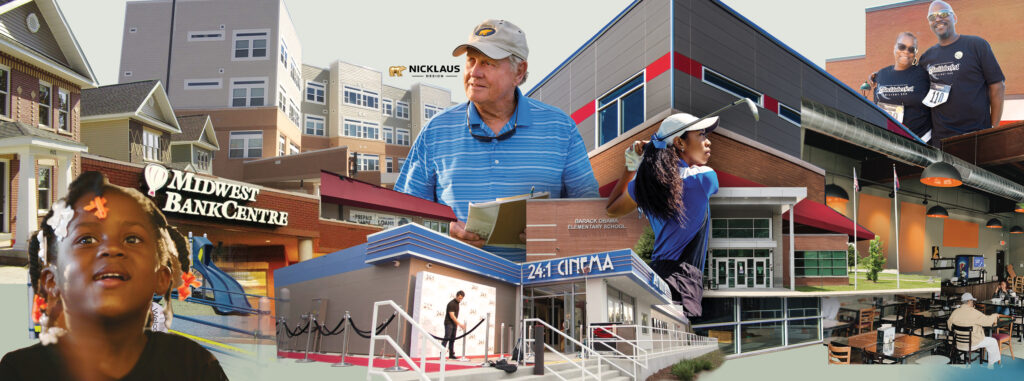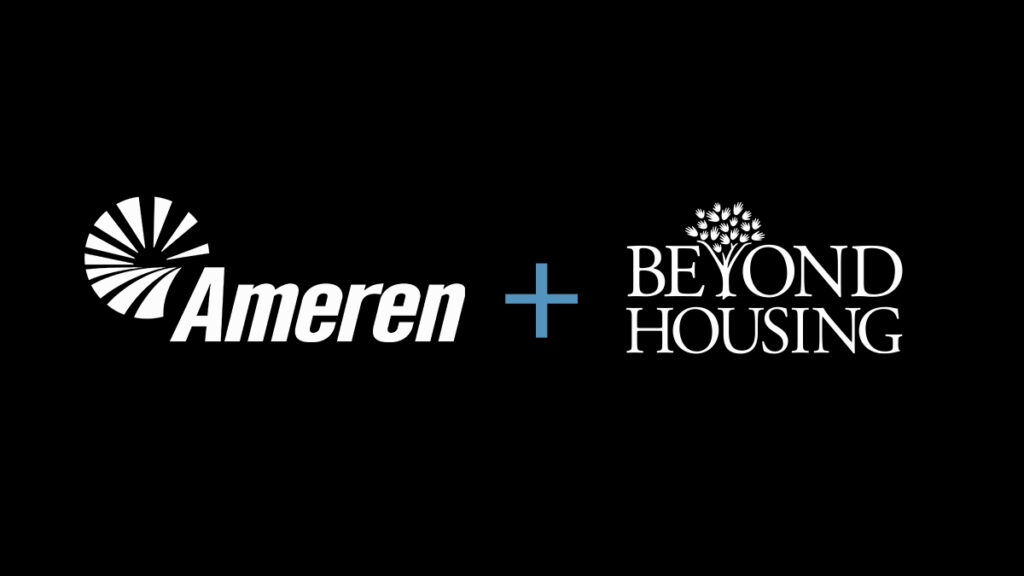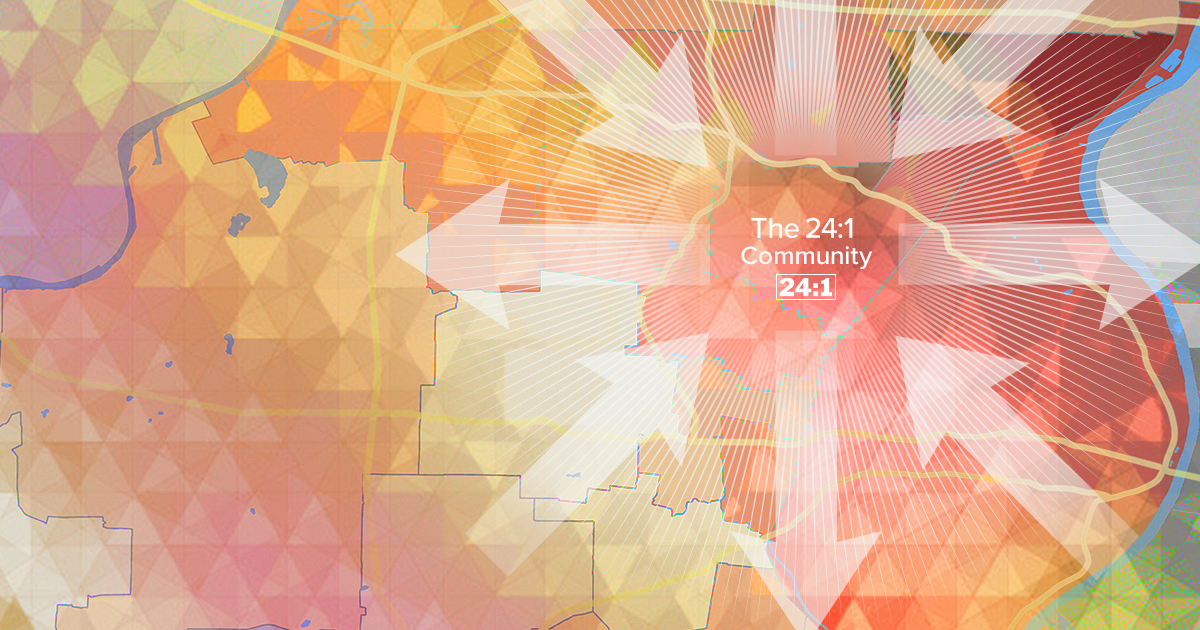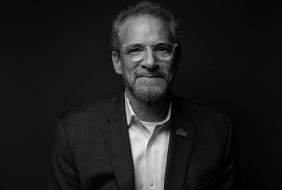This article originally appeared on stlmag.com
Beyond Housing CEO Chris Krehmeyer writes how the solution for moving all of St. Louis forward lies within its own backyard
We spend a lot of time in St. Louis talking about all the things that are wrong with our region. From our declining population and drop out of the list of the top 20 metro regions to our difficulty in attracting talent and our reputation as an area of high crime, the list is long and varied.
We fill auditoriums with panel discussions, many of which I’ve either been a participant or an audience member, discussing these problems and how to correct our course for the future.
In all of these discussions, I feel that it is my duty and moral obligation to wave my hands and say that the solution we are looking for lies in North St. Louis County.
The work that has been taking place in North St. Louis County is a story that warrants the attention of the entire region: because of the progress that has already been made and the great need to build on this work for our collective future.

Building an infrastructure of transformation
Since 2010, Beyond Housing and many other organizations have been working with residents and community officials to transform an area called the 24:1 Community—a community comprised of multiple municipalities within the Normandy schools footprint. For decades, this area has had the highest concentration of poverty in the Missouri side of the metro region.
A month ago, I wrote about the significant results we are now seeing in the 24:1 Community and, specifically, Pagedale. The results in Pagedale include:
- An increase in residential property sale values from $12 per square foot in 2013 to $56 per square foot in 2022—a 338 percent increase—according to MLS sales data
- 42 percent decline in total crimes since 2013, according to the Pagedale Police Department
- 249 percent increase in the number of businesses since 2010, according to the Missouri Department of Revenue
- An increase of nearly $10 million in taxable commercial sales—from $22,900,046 in 2010 to $32,634,217 in 2022—based on data from the Missouri Department of Revenue
This progress is not just due to the work of Beyond Housing. It’s the result of an extensive infrastructure of nonprofit, corporate, and philanthropic partners as well as residents and civic leaders. By working together instead of in silos, we are creating a critical mass—an impact that is far greater than any of us could achieve on our own.

Integrating and aligning efforts
Two Beyond Housing partners, Community Impact Network and the Housing Authority of St. Louis County, are examples of organizations that are integrating efforts and aligning resources for greater results, especially in the city of Wellston.
The Community Impact Network funds a wide range of services and further supports and collaborates with roughly 75 nonprofit member organizations that, together, provide a comprehensive range of services to residents in the 24:1 Community. The Network also works extensively with local municipalities, demolishing and renovating existing homes and constructing new homes to ensure that communities and residents have a diversity of housing options, from low-income housing to market-rate homeownership opportunities. The Community Impact Network invests more than $10 million annually in serving the 24:1 Community.
In a successful collaboration between the Community Impact Network, the City of Wellston, and McBride & Sons Homes, Eskridge Estates emerged as a remarkable development featuring 23 new 3–4-bedroom homes in Wellston, all of which were sold within just 51 days. Thanks to the financial support from the Network, the City of Wellston was able to complete this project without relying on tax breaks or public incentives that could divert funds from essential services like education.
Winston Calvert is the CEO of the Community Impact Network. Calvert credits the progress in North St. Louis County to both a concentration of resources and alignment. “Those of us who care deeply about the people of North County have never been so aligned and integrated as we are right now,” says Calvert. “The Network’s investments would not have nearly the impact they do without partners like Beyond Housing and so many others who share our deep commitment to the people we serve.”
The Housing Authority of St. Louis County is one of the primary providers of affordable housing in the region. To increase access to housing, the Authority works with nonprofits and municipal governments interested in developing new affordable housing as a part of their community.
Wellington Family Homes—a $44 million rehab of the 186-unit public housing complex in Wellston now under construction—was made possible through a coalition of the Housing Authority, residents and officials of the City of Wellston, and the Community Impact Network; upon completion, the Network will fund Beyond Housing to provide holistic supportive services to increase the self-sufficiency of each of the families in the 186 units.
On the Wellington Family Homes project, Housing Authority of St. Louis County Executive Director and CEO Shannon Koenig played a major role in bringing partners together to preserve affordable housing in Wellston. “This project is about more than just rehabbing housing; it represents a commitment to the residents of Wellston, people who love their community and deserve the same level of investment that folks in more affluent areas of the county receive.” Koenig says, “When government agencies and leaders, elected officials, and community partners work together to invest in our communities, the impact is so much greater.”
Stratford Commons in nearby Pine Lawn is another example of partnership in action. This project between the Housing Authority of St. Louis County and Beyond Housing converts an existing 114-unit complex into quality affordable housing. The Community Impact Network will fund Beyond Housing to provide supportive services to increase the economic mobility of residents. “We see that organizations aligning investments results in a stronger, more inclusive community for everyone,” Koenig says.

The power of public-private partnerships
As with the revitalization efforts in Detroit, public-private partnerships are playing a major role in creating momentum. Corporations, including Ameren, BJC HealthCare, Boeing, Emerson, KPMG, Midwest BankCentre, U.S. Bank, and Wells Fargo, have joined the effort alongside nonprofits, residents, and municipal leaders.
In addition to increased support from BJC HealthCare and others, Ameren recently pledged $1 million to help further the transformation of the 24:1 Community.
Ameren cites the scale and comprehensive scope of this effort—from housing to education, employment, health, economic development, and more—as key reasons for their commitment. “We are focusing our philanthropic resources on organizations that are creating real movement at a scale where our customers need it most,” says Gwen Mizell, Ameren vice president and chief sustainability, diversity and philanthropy officer.
The reasons for joining in extend beyond philanthropy. Corporations understand that investing in their business also means investing in their own backyard.
Embracing the untraditional: Jack Nicklaus Design Group and the Normandie Golf Club
The Normandie Golf Club is an example of an innovative opportunity born from nontraditional partnerships.
Thanks to our partners at the Metropolitan Amateur Golf Association, Jack Nicklaus and his renowned Nicklaus Design firm have agreed to redesign the historic public course in the heart of the 24:1 Community.
The project is much bigger than a golf course. The restoration will open the sport of golf to local Black youth, create educational and career opportunities, and transform an aging community asset into a regional destination to attract visitors and dollars to the community.
An infrastructure for transformation
Our lack of progress in St. Louis is not due to a lack of resources. It’s that our resources are often spread too thin among organizations operating in silos.
Connectivity, alignment, and integration are everything. One comprehensive and integrated effort is infinitely more impactful than a dozen one-offs.
Over the course of several years, we have built an infrastructure in North St. Louis County that is primed to provide impact at scale to strengthen our entire region. By leveraging this infrastructure and the more than $175 million raised by Beyond Housing alone—and replicating this template in other areas like North St. Louis City—we can finally address the source of our region’s challenges to move our region forward.
The opportunity is here, but we must seize it—now. If we don’t, it’s a safe bet that we’ll be having these same conversations for the next 10 to 20 years.
Let’s begin changing these conversations—and our region’s future as well—once and for all.
To learn more about Beyond Housing’s work, visit Once and for All, and sign up for the newsletter for the latest developments. If you are interested in our work and ways to help, I would love to talk with you.




